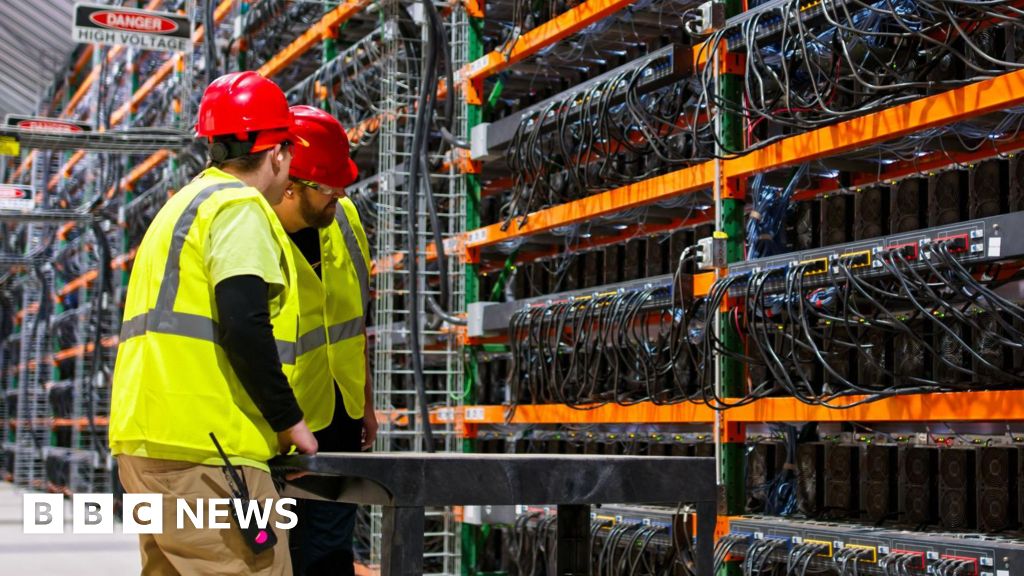The new Labour government has shelved £1.3bn of funding promised by the Conservatives for tech and Artificial Intelligence (AI) projects, the BBC has learned.
It includes £800m for the creation of an exascale supercomputer at Edinburgh University and a further £500m for AI Research Resource, which funds computing power for AI.
Both funds were unveiled less than 12 months ago.
The Department for Science, Innovation and Technology (DSIT) said the money was promised by the previous administration but was never allocated in its budget.
Some in the industry have criticised the government’s decision.
Tech business founder Barney Hussey-Yeo posted on X that reducing investment risked “pushing more entrepreneurs to the US.” Businessman Chris van der Kuyl described the move as “idiotic.”
Trade body techUK said the government now needed to make “new proposals quickly” or the UK risked “losing out” to other countries in what are crucial industries of the future.
DSIT has defended its actions though
“The government is taking difficult and necessary spending decisions across all departments in the face of billions of pounds of unfunded commitments,” it said in a statement.
“This is essential to restore economic stability and deliver our national mission for growth.”
It added that it remained “absolutely committed” to building technology infrastructure in the UK.
Those affected have been notified by Secretary of State Peter Kyle.
The Conservatives, though, say that under its leadership, DSIT had underspent.
“As a point of fact, at the time the election was called, ministers had been advised by officials that the department was likely to underspend its budget for the current financial year,” said shadow secretary Andrew Griffith.
“Our commitment in government to science, research and innovation including UK leadership on AI was outstanding.”
The future of the Edinburgh exascale supercomputer is currently unclear.
The University of Edinburgh told BBC News that Professor Sir Peter Mathieson, its Principal and Vice-Chancellor, is urgently seeking a meeting Mr Kyle following the news.
There are only a small number of such immensely powerful machines in the world, with an earlier version housed in Bristol.
The new funding was announced in October last year and Edinburgh University had already spent £31m building housing for it.
It was considered to be a priority project by the previous government.
The machine would have been 50 times faster than any current computers in the UK, the university said at the time.
“Exascale will help researchers model all aspects of the world, test scientific theories and improve products and services in areas such as artificial intelligence, drug discovery, climate change, astrophysics and advanced engineering,” it says on its website.
A spokesperson for the university told the BBC that it “has led the way in supercomputing within the UK for decades”.
“[It] is ready to work with the government to support the next phase of this technology in the UK, in order to unlock its benefits for industry, public services and society,” they added.
Angus Robertson MSP, the Scottish government’s Cabinet Secretary for the constitution, external affairs and culture, simply described the development as “bad news”.
Sue Daley, the director of technology and innovation at techUK, said ministers now needed to plot a new way forward.
She told BBC News: “Investment in large scale computers is vital for the scientific breakthroughs that will grow our economy and improve our lives.
“The UK had sent clear signals about its ambitions to host a new generation of computers to enable cutting edge research, including in AI.
“In an extremely competitive global environment, the government needs to come forward with new proposals quickly. Otherwise, we will lose out against our peers.”
Last week, DSIT announced that Matt Clifford, who was one of the organisers of the inaugural AI Safety Summit held at Bletchley Park in November 2023, had been asked to draw up an action plan for identifying new “AI opportunities”- including infrastructure.
The tech sector is considered to be a valuable part of the UK economy, and therefore important for the economic growth Labour has pledged to prioritise.
In a recent report, the tech network Tech Nation gave it a market value of $1.1 trillion (£863bn) in the first quarter of 2024.
Additional reporting by Graham Fraser

